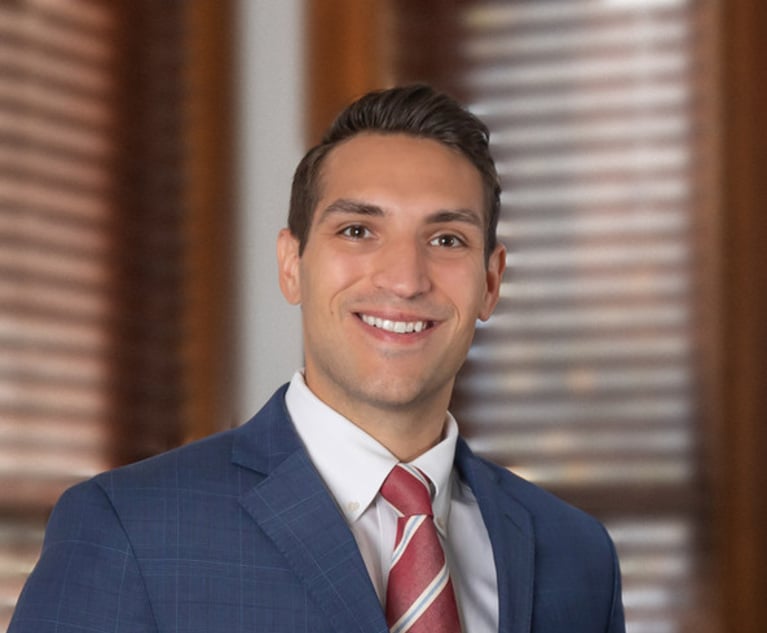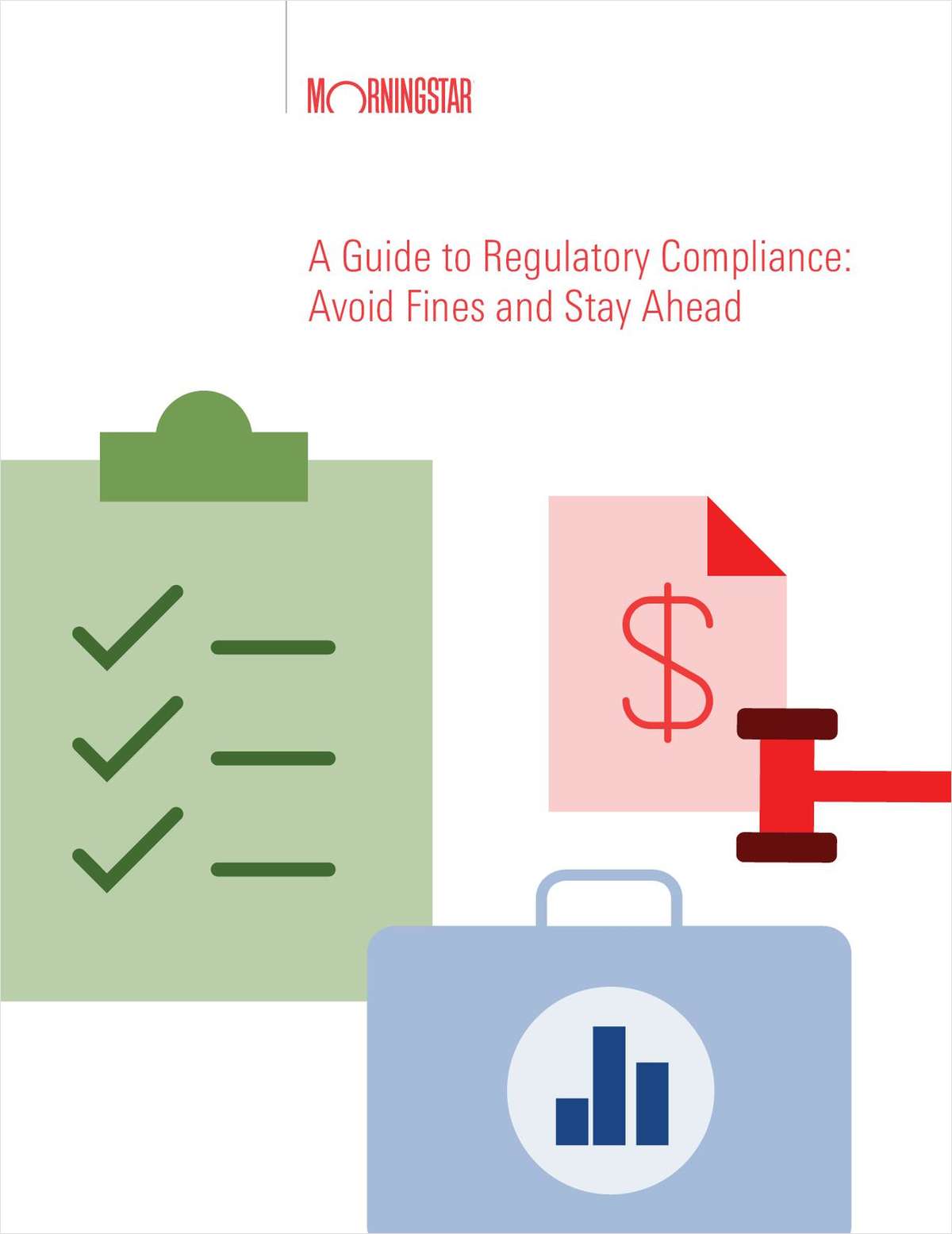 Connecticut Chief State's Attorney Richard Colangelo Jr. Photo: Robert Storace/ALM
Connecticut Chief State's Attorney Richard Colangelo Jr. Photo: Robert Storace/ALMGet to Know Richard Colangelo Jr.: 5 Questions for Connecticut Chief State's Attorney
Richard Colangelo Jr., who has been chief state's attorney for 25 days, sat down with the Connecticut Law Tribune Monday to discuss issues ranging from police accountability and a pilot program to pay traffic tickets online to prosecuting child-exploitation cases.
February 25, 2020 at 03:07 PM
6 minute read
As Richard Colangelo Jr. settles into his job as the new chief state's attorney, the former state's attorney for the Judicial District of Stamford/Norwalk has a packed agenda, including meetings with community leaders and Connecticut's 13 state's attorneys, and deploying new initiatives.
One project—a pilot plan that began in 2019—will make Connecticut one of the first states to allow residents to resolve traffic tickets online, without going to court. Officials say the move will unburden court dockets, and make room for more pressing issues.
Colangelo, a 53-year-old Stamford native and Easton resident, took office Jan. 31. He discussed the online traffic ticket pilot program and other initiatives in a conversation Monday with the Connecticut Law Tribune. He answered five questions, and his responses have been edited for clarity and space.
Connecticut Law Tribune: During the interview process for chief state's attorney, you said a top priority would be to hear the concerns of community members about the criminal justice system. In some communities, there is a concern of police accountability. Please be specific about what you will tell these community members about how your office will work with them on that issue.
Richard Colangelo Jr.: I want to work with the 13 state's attorneys to make sure we are having outreach and listening to the concerns of the community.
If community members can't reach—or don't get satisfaction—by one of the state's attorneys, then by all means reach out to me and my office and we will try to rectify that.
Yes, if the community has a concern about something, then it's a legitimate concern for us to have to deal with. If someone has a concern, we should be dealing with it or addressing it in the system. I will be meeting with community members a lot in this job.
CLT: In a questionnaire with the American Civil Liberties Union's Smart Justice Connecticut, you were asked about creating an independent conviction-integrity unit to review and investigate innocence claims presented on behalf of people convicted of violent offenses. Please elaborate on your position.
Colangelo: I actually just set up an advisory board to look at the best practices around the country for conviction-integrity units.
I'm trying to get the board to meet and I am hoping to have them meet in March or early April. I want to have them get together to determine what the best practices are, and I'll take that information to the state's attorneys, and determine what we want to do for the division.
I think it's an important idea, and something we should be working on.
CLT: About 19 months ago, you helped begin a pilot program that has since been adopted statewide where traffic tickets are being settled online, rather than in the courtroom. What was the impetus for that and how is the program going?
Colangelo: It's a great idea, and actually allows people to adjudicate their infractions without having to come to court. They can plead not guilty online. I think it's working great.
I want to make sure that other state's attorneys are maximizing this program to the best of their ability, like I was able to do in Stamford. We were able to reduce the traffic on infraction days by 30 to 40%. That is people who do not have to come to court to deal with their cases, and don't have to take time out to deal with their cases.
We can also set up a situation where we might be able to have someone watch a public-service announcement or a video to get an understanding of what their driving habits can lead to.
It's a great project and it's a great resource. I'd like to see what we can do working with [the judiciary] to see if we can expand the access to this.
It's about accessibility to courts. It allows somebody to get their information to the prosecutor online, allows them to have their case told, and have their case go to a prosecutor without having to come to court.
CLT: Part of your background includes a specialty in prosecuting child exploitation cases involving the internet. Tell is what you will do now, and please be specific, in this effort as chief state's attorney.
Colangelo: One of the things I was able to do in my jurisdiction in Stamford/Norwalk was to expand the capabilities to review and analyze data.
We set up and established the Technical Investigations Unit of Southwest Connecticut. We have officers from the towns in my jurisdiction trained to do data extraction from cellphones and computer forensic analysis. I'd like to expand those capabilities.
CLT: What's the biggest out-of-the-box idea you'd like to implement as the new chief state's attorney?
Colangelo: I don't have a big idea right now, but I do want to go around to all of the Judicial districts, and do an assessment of personnel to see what the needs are for the division.
I think getting the case management system up and working in each office and each jurisdiction is going to be a great help to the prosecutors in the state, to be able to explain what we do, how we do it and why we do it.
The case management system is a computer system that allows prosecutors to track their cases. It might not be innovative, but it's a long time coming, and we should make sure we get this done.
Related stories:
This content has been archived. It is available through our partners, LexisNexis® and Bloomberg Law.
To view this content, please continue to their sites.
Not a Lexis Subscriber?
Subscribe Now
Not a Bloomberg Law Subscriber?
Subscribe Now
NOT FOR REPRINT
© 2025 ALM Global, LLC, All Rights Reserved. Request academic re-use from www.copyright.com. All other uses, submit a request to [email protected]. For more information visit Asset & Logo Licensing.
You Might Like
View All
New York-Based Harris Beach Combines With Connecticut-Based Murtha Cullina, Forming NE Powerhouse
3 minute read
Conn. Supreme Court: Workers' Comp Insurance Cancellations Must Be Unambiguous
4 minute read
Trending Stories
- 1Restoring Trust in the Courts Starts in New York
- 2'Pull Back the Curtain': Ex-NFL Players Seek Discovery in Lawsuit Over League's Disability Plan
- 3Tensions Run High at Final Hearing Before Manhattan Congestion Pricing Takes Effect
- 4Improper Removal to Fed. Court Leads to $100K Bill for Blue Cross Blue Shield
- 5Michael Halpern, Beloved Key West Attorney, Dies at 72
Who Got The Work
Michael G. Bongiorno, Andrew Scott Dulberg and Elizabeth E. Driscoll from Wilmer Cutler Pickering Hale and Dorr have stepped in to represent Symbotic Inc., an A.I.-enabled technology platform that focuses on increasing supply chain efficiency, and other defendants in a pending shareholder derivative lawsuit. The case, filed Oct. 2 in Massachusetts District Court by the Brown Law Firm on behalf of Stephen Austen, accuses certain officers and directors of misleading investors in regard to Symbotic's potential for margin growth by failing to disclose that the company was not equipped to timely deploy its systems or manage expenses through project delays. The case, assigned to U.S. District Judge Nathaniel M. Gorton, is 1:24-cv-12522, Austen v. Cohen et al.
Who Got The Work
Edmund Polubinski and Marie Killmond of Davis Polk & Wardwell have entered appearances for data platform software development company MongoDB and other defendants in a pending shareholder derivative lawsuit. The action, filed Oct. 7 in New York Southern District Court by the Brown Law Firm, accuses the company's directors and/or officers of falsely expressing confidence in the company’s restructuring of its sales incentive plan and downplaying the severity of decreases in its upfront commitments. The case is 1:24-cv-07594, Roy v. Ittycheria et al.
Who Got The Work
Amy O. Bruchs and Kurt F. Ellison of Michael Best & Friedrich have entered appearances for Epic Systems Corp. in a pending employment discrimination lawsuit. The suit was filed Sept. 7 in Wisconsin Western District Court by Levine Eisberner LLC and Siri & Glimstad on behalf of a project manager who claims that he was wrongfully terminated after applying for a religious exemption to the defendant's COVID-19 vaccine mandate. The case, assigned to U.S. Magistrate Judge Anita Marie Boor, is 3:24-cv-00630, Secker, Nathan v. Epic Systems Corporation.
Who Got The Work
David X. Sullivan, Thomas J. Finn and Gregory A. Hall from McCarter & English have entered appearances for Sunrun Installation Services in a pending civil rights lawsuit. The complaint was filed Sept. 4 in Connecticut District Court by attorney Robert M. Berke on behalf of former employee George Edward Steins, who was arrested and charged with employing an unregistered home improvement salesperson. The complaint alleges that had Sunrun informed the Connecticut Department of Consumer Protection that the plaintiff's employment had ended in 2017 and that he no longer held Sunrun's home improvement contractor license, he would not have been hit with charges, which were dismissed in May 2024. The case, assigned to U.S. District Judge Jeffrey A. Meyer, is 3:24-cv-01423, Steins v. Sunrun, Inc. et al.
Who Got The Work
Greenberg Traurig shareholder Joshua L. Raskin has entered an appearance for boohoo.com UK Ltd. in a pending patent infringement lawsuit. The suit, filed Sept. 3 in Texas Eastern District Court by Rozier Hardt McDonough on behalf of Alto Dynamics, asserts five patents related to an online shopping platform. The case, assigned to U.S. District Judge Rodney Gilstrap, is 2:24-cv-00719, Alto Dynamics, LLC v. boohoo.com UK Limited.
Featured Firms
Law Offices of Gary Martin Hays & Associates, P.C.
(470) 294-1674
Law Offices of Mark E. Salomone
(857) 444-6468
Smith & Hassler
(713) 739-1250











